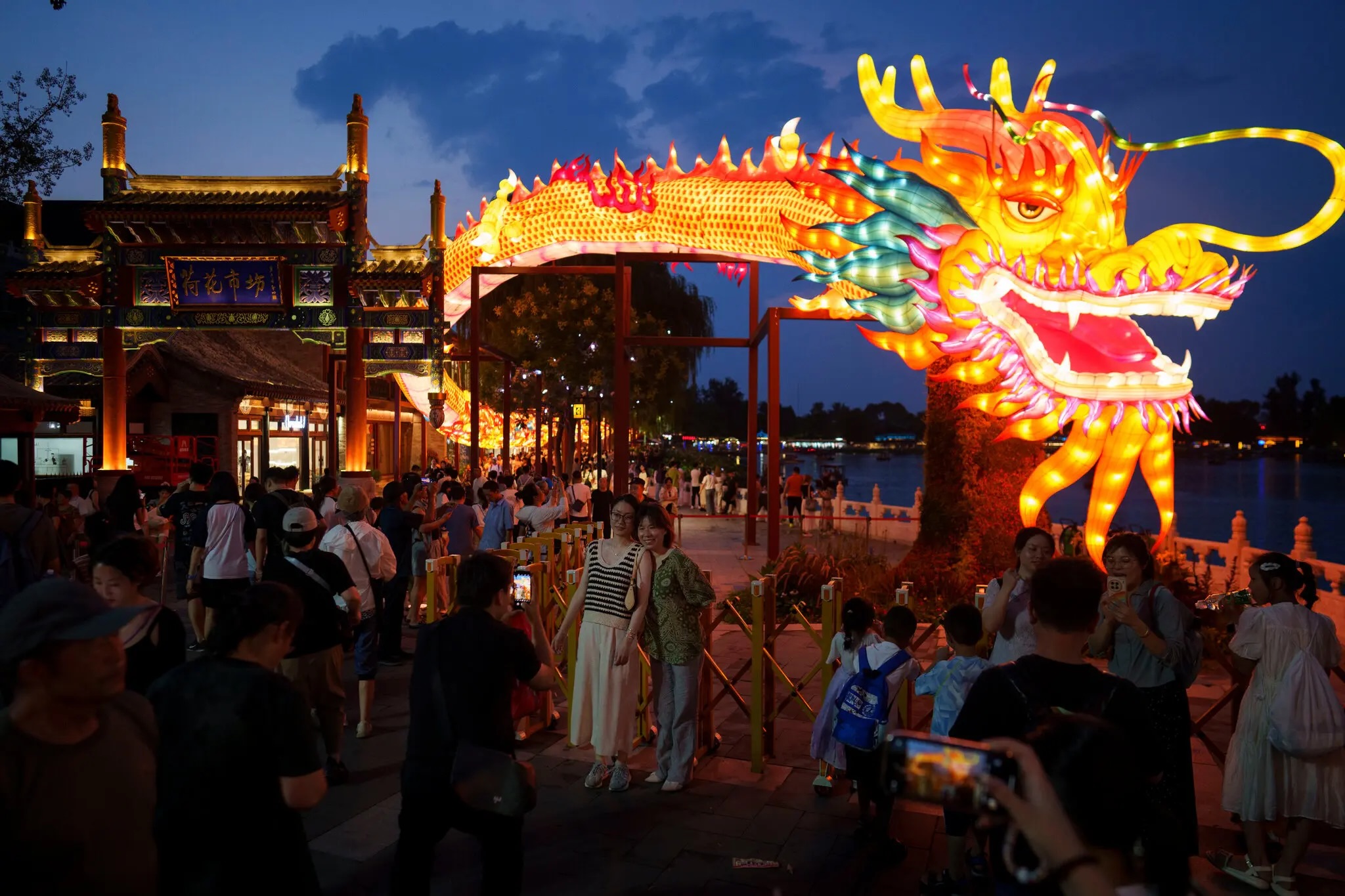China’s Live Stream Illusion Fake Hardships Counterfeit Goods and a $700 Billion Deception

In China’s ever-evolving digital landscape, live stream e-commerce has surged into an industry worth a staggering ¥5 trillion ($689 billion USD) as of 2023. This growth—20 times larger than its U.S. counterpart and nine times Walmart's annual global online revenue—reflects the nation’s consumer culture, which emphasizes convenience and affordability. Yet, amidst this booming market, fraudulent influencers are distorting perceptions, crafting illusions, and misleading audiences to achieve fame and financial success.
In Shanghai’s short video production hubs, entire rooms are meticulously designed to resemble college dormitories, hospital wards, classrooms, subway cars, or even mock factory assembly lines. These artificial settings serve as elaborate backdrops for influencers, who present themselves as hardworking entrepreneurs, corporate elites, or fashion icons. Some take it a step further by renting private jets and luxury hotel suites, falsely portraying these high-end experiences as part of their daily lives.
Merchants also participate in deception, staging factory-direct sales with fake assembly line setups to enhance their credibility. Online stores openly sell short video scripts promising a million views in just three days for as little as ¥6 ($0.60 USD), further feeding the illusion. These tactics blur the line between marketing ingenuity and outright fraud, leading many consumers to fall for fabricated product origins and influencer personas.
The deception in China’s live-streaming economy extends beyond material excess—it reaches into emotional manipulation. On September 4, 2024, authorities raided the live stream of Little Xiao’s Hardworking Life, a popular influencer who claimed to be an 18-year-old orphan struggling to survive. Her tearful broadcasts stirred sympathy, driving audience engagement and sales. However, a police investigation uncovered the truth—her real name was Xiao, and she was actually 29 years old.
Even more shocking, her supposed mentally ill adoptive mother frequently featured to evoke compassion—was, in reality, her biological mother. Xiao had fabricated her tragic story to gain followers and boost product sales. Once the deception was exposed, public outrage led to the permanent ban of her account.
China’s live-streaming industry thrives on emotionally charged narratives, turning personal struggles into profitable brands. Influencers often present themselves as orphans, single parents, or hardworking labourers, weaving dramatic stories to gain sympathy and trust from their audience.
Take Liam Shan Dreams, a 19-year-old streamer who captivated followers with his modest rural lifestyle, claiming to help local farmers sell produce without accepting money. His authenticity won widespread admiration—until authorities exposed the sophisticated commercial network behind his image.
Far from grassroots efforts, Shan’s operation was backed by a team managing scripts, logistics, and sales, rebranding mass-produced goods as premium Leonan specialties. This deceptive model raked in ¥10 million ($1.37 million USD) annually, proving the enormous financial rewards of carefully crafted illusions.
One of the most notorious collapses in China’s live-streaming economy was the downfall of Three Sheep Network Technology Co. Ltd., founded by Xiangqing Xiang, widely known as Crazy Lamb Brother. His comedic videos and live streams attracted 1.2 billion followers on Douyin site, generating ¥3.2 billion annually. With a 26-story headquarters, Xiang seemed unstoppable—until his empire crumbled during the 2024 Mid-Autumn Festival.
The scandal erupted when Xiang accused a supplier of violating a pricing deal, allegedly favouring competitor Shinba with discounted crab gift cards. Enraged, Xiang demanded the supplier cut ties with Shinba, triggering a fierce and highly publicized dispute.
Shinba retaliated by uncovering widespread fraud within Three Sheep, starting with the infamous Hong Kong Meching Moon Cakes. Marketed as Michelin chef-crafted delicacies with premium black truffle fillings, these luxury moon cakes were originally priced at ¥238 per set before being discounted to ¥169 ($23 USD). Over a million boxes were sold within a month. However, investigations revealed the truth—they weren’t produced in Hong Kong but in a standard factory in Foshan, Guangdong, where similar products retailed for just ¥59 ($8 USD).
As scrutiny intensified, more allegations surfaced against Xiang. His company had been selling counterfeit Maotai liquor and passing off low-quality pre-packaged meals as premium cuisine. Yuhuan Preserved Pork with Plum Vegetables, for example, was made from cheap pork scraps but marketed as a gourmet dish. Consumer complaints and lab reports further shattered Xiang’s credibility, turning him from a revered entrepreneur into a disgraced fraudster, barred from leaving China.
China’s live-stream economy is booming, but rampant deception threatens consumer trust. Weak regulations allow fraudsters to exploit audiences for profit, leading to scandals that shake even top influencers and major corporations.
To restore credibility, stronger oversight and consumer awareness are crucial. Stricter laws must curb deceptive marketing and safeguard buyers from manipulation. Until such reforms take effect, the boundary between genuine engagement and outright fraud remains dangerously blurred, leaving millions vulnerable to misinformation and exploitation in the digital marketplace.




![From Kathmandu to the World: How Excel Students Are Winning Big [Admission Open]](https://www.nepalaaja.com/img/70194/medium/excel-college-info-eng-nep-2342.jpg)
